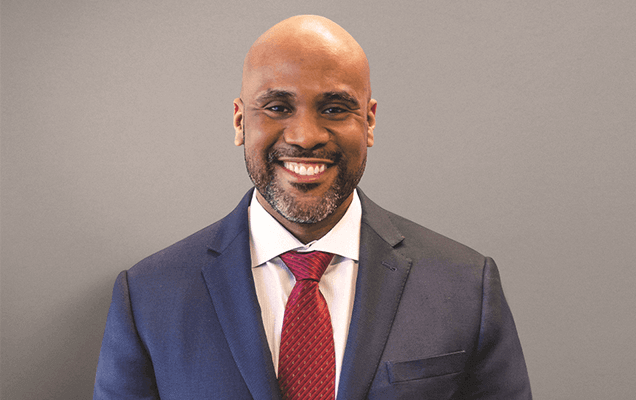Do you have a cervical disc replacement surgery (also known as intervertebral disc arthroplasty) right around the corner? It’s likely that your doctor has briefed you on what you need to do to prepare and what to expect from the procedure. However, you may still have questions on what to expect after cervical disc replacement surgery. For peace of mind prior to your procedure, review the following overview of what to expect from cervical disc replacement surgery.
What is cervical disc replacement surgery?
Cervical disc replacement surgery addresses a damaged disc in the neck region of your spine that isn’t functioning properly. As it disintegrates or compresses, it can cause pressure on your spinal cord and nerves, creating pain and other symptoms. To remedy these symptoms, your doctor may recommend a cervical disc replacement.
A cervical disc replacement device is comprised of metal and sometimes synthetic materials. It works in a similar fashion as your natural disc by allowing for movement at the replacement helping to restore your neck back to full functionality.
Typically, the reason doctors suggest a disc replacement rather than a cervical discectomy and fusion is to help preserve range of motion. A disc replacement provides an inviting alternative to the movement restriction that results from plates, screws and bone grafts associated with a traditional discectomy and fusion.
Although discectomy and fusion are proven treatments with good success rates, it may not be the most appropriate course of action for you. A recommendation for a disc replacement may have been made because you lead an active lifestyle or in light of other factors.
The Procedure
Your cervical disc replacement surgery will be performed in an accredited hospital or surgical center. Disc replacement requires that you be put under general anesthesia. Prior to your surgical date, you may be referred for bloodwork and other tests to ensure you’re able to tolerate anesthesia without complication.
Once you are asleep, your surgeon and his or her team will create an incision in the front of your neck. This gives them direct access to the region of your neck they must operate on.
The entire disc being replaced (including any fragments) is removed. It may also be necessary for them to remove osteophytes (commonly known as bone spurs) that may have developed in the area.
A special surgical instrument is used to restore or maintain the original disc height space between the vertebrae, eliminating pressure on the nerves and spinal cord. This also allows the surgical team to more easily place the new disc.
Through the use of fluoroscopy or x-rays, the new artificial disc is carefully positioned and secured in place.
What to Expect After Cervical Disc Replacement Surgery
Your recovery from surgery starts as soon as your surgeon finishes closing the incision. Knowing what to expect after cervical disc replacement surgery can help you prepare for a smooth recovery period.
After surgery, you can expect to spend up to 24 hours in the hospital. Once you’re released, you’ll be sent home with recommendations on how to modify your activities. You will also need to continue to take the pain medication you’ve been given to ensure that you maintain an optimum comfort level.
It is also a good idea to be sure you’re eating a well-balanced diet low in processed sugars and with plenty of protein. If you have dietary restrictions, be sure to discuss this with your doctor.
Don’t be afraid to ask for help
Before your procedure, it’s a good idea to arrange for help around the house. After surgery, even daily tasks such as laundry, dishes and vacuuming can put stress on the surgical site. Be sure to have someone that can help you with these tasks and drive you where you need to go in the first few weeks of recovery. It’s imperative you don’t overextend your neck and damage your surgical site.
It's time to get back to doing what you love.
Week One
The first week you may notice you’re more tired than usual. This is normal; it takes a lot of energy to heal! Rest regularly and don’t take on too much. It’s a good idea to take a week or so off from work so you can concentrate on taking adequate care of yourself.
You may be sent home with a soft cervical collar for comfort or to help protect the newly inserted replacement disc. Your doctor will guide you on how long to wear this.
Take short, frequent walks to keep your circulation moving. This is vital for bringing fresh blood and plenty of oxygen to the surgical site.
Weeks Two – Four
Following your initial recovery period in week one, you should start to notice that your energy level increases. You will also find your mobility is improved. Despite feeling better, it’s still important to heed your doctor’s recommendations.
At this point in time, you can return to light-duty work. This includes anything that doesn’t put strain on your neck. You should still be cautious about lifting heavy loads or doing a lot of bending or reaching.
Week Four and on
By the time you’ve passed the week four marker, you should be feeling almost back to yourself. Probably even better with your newfound mobility!
You can resume the majority of your daily activities. In the case of heavy work, you may need to wait to week six or even eight to resume your full list of duties.
Around week eight, you will have a recheck with your surgeon to check the progress of your healing and ensure that the disc is working as it is supposed to.
Potential complications
As with any procedure, you should know what is typical after cervical disc replacement surgery, including potential complications. While rare, if you know what to look for, you are better prepared should an issue arise.
- Redness, swelling, heat or oozing of the surgical wound
- Worsening of pain, numbness or tingling after the first few days
- Fever
- Allergic reaction to the implant material
- Difficulty swallowing
- Shifting of implants
To ensure a successful recovery after disc replacement surgery, make sure to speak to your doctor about any of the above information and questions that you may have pertaining to your individual condition.

About Dr. Gaetan Moise
Dr. Gaetan Moise is an accomplished neurosurgeon in North Jersey and is a proud member of Neurosurgeons of New Jersey, practicing out of their Ridgewood office conveniently located on East Ridgewood Avenue. His compassionate evidence-based, results-driven approach is guided by his desire to help patients achieve happy, pain-free lives through non-surgical and appropriate surgical solutions. Dr. Moise’s techniques are influenced by the advancements in minimally invasive surgery technology as well as advances in the understanding of the intricacies of the nervous system, brain, and spinal cord. Dr. Moise is a member of The Congress of Neurological Surgeons and the American Association of Neurological Surgeons. He is accepting new patients.






